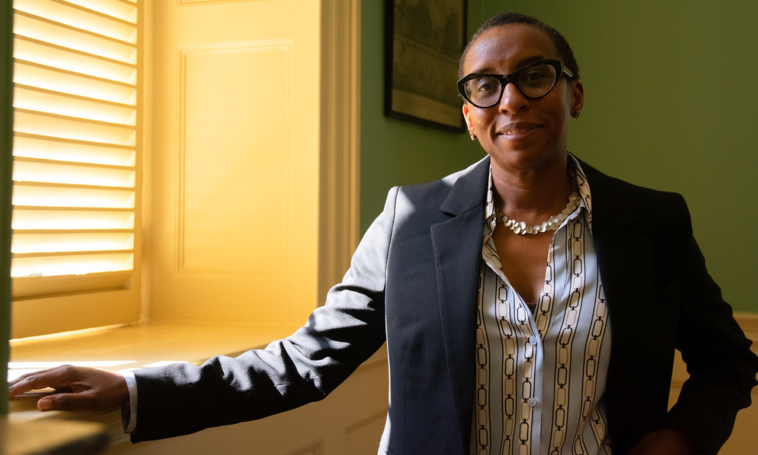Harvard Students Write Newspaper Editorial Pressuring President Claudine Gay to ResignThe controversy surrounding plagiarism allegations against Harvard President Claudine Gay has deepened, with a member of the university’s student Honor Council calling for her resignation in a strongly worded letter published anonymously in the Harvard Crimson.
The letter not only highlights the specific allegations against Gay but also underscores what the author perceives as a double standard in the treatment of students accused of plagiarism compared to the university president.
The letter starts by painting a vivid picture of the emotional toll faced by students appearing before the Honor Council, describing it as the worst day of their college careers or, for some, the worst day of their lives.
The juxtaposition with Gay’s situation is stark, with the student expressing the view that Gay is “getting off easy” compared to the harsh consequences faced by fellow students.
The plagiarism allegations against Gay came to light after a complaint was received by Harvard University on December 19. The complaint outlined over 40 instances of plagiarism, with examples indicating a pattern of quoting or paraphrasing without proper attribution.
The anonymous student emphasizes that the alleged improprieties are not isolated incidents but rather routine and pervasive throughout nearly half of Gay’s scholarly output.
The accusations, as outlined in a copy of the complaint reviewed by the Washington Free Beacon, include instances where Gay failed to use quotation marks around phrases or sentences and even lifted entire paragraphs without proper citation.
This level of alleged plagiarism is a serious matter, prompting the student to question the university’s response and draw attention to what they see as a glaring double standard.
The student criticizes the school’s backing of Gay and its role in helping her correct the mistakes, contrasting this approach with the harsh penalties often imposed on students found responsible for plagiarism.
The letter argues that undergraduates, unlike Gay, cannot simply submit corrections to avoid penalties and face more severe consequences for similar infractions.
Central to the student’s argument is the claim that the university, specifically the Corporation, Harvard’s governing body, has applied a lower standard for Gay compared to students.
The Corporation’s statement expressing unanimous support for Gay, considering her corrections as an adequate response, became a focal point of contention. The student asserts that this response is fundamentally unfair and fails to hold the president to the same standard applied to students in similar situations.
The double standard becomes particularly apparent in the student’s comparison of consequences. When undergraduates are found responsible for multiple instances of inadequate citation, they often face suspension for an academic year. In contrast, the Corporation’s support for Gay, despite the alleged routine and pervasive nature of her improprieties, is presented as a clear disparity.
The student’s call for Gay’s resignation is rooted in the demand for consistency and fairness within the university’s handling of plagiarism allegations. They argue that the Corporation should resolve this perceived double standard by taking decisive action against Gay.
The letter concludes with a powerful statement: “There is one standard for me and my peers and another, much lower standard for our University’s president. The Corporation should resolve the double standard by demanding her resignation.”



One Comment
Leave a ReplyOne Ping
Pingback:Al Sharpton blasted for calling Harvard president's resign..
Join the Community and Be a Part of the Conversation
You must be logged in or registered to post a comment.